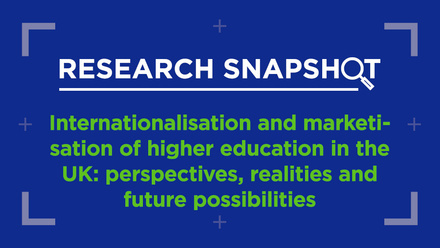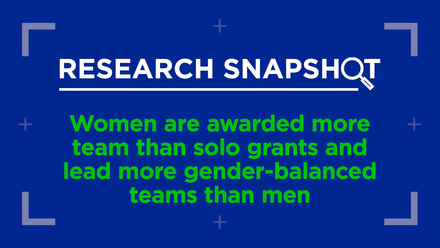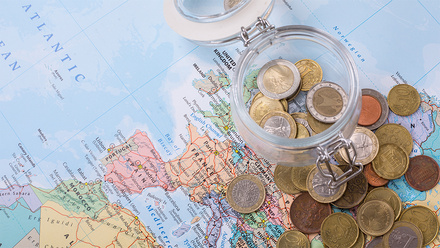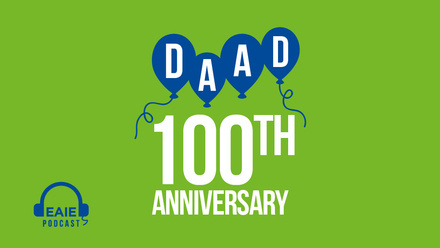The changing face of international higher education

It is often said that the UK higher education sector is world-leading, and a key soft power ‘asset’ for the UK, a jewel in the crown, generating enormous revenue for the economy, bringing cultural diversity and enriching the lives of students and communities. However, there are signs that the UK’s leading position will be hard to sustain as other countries increasingly see international higher education (IHE) as the key area of soft power competition in the next 10 years.
The current Integrated Review (IR) of Security, Defence, Development and Foreign Policy aims to define the Government’s vision for the UK’s role in the world over the next decade. In doing so, it will “re-examine the UK’s priorities and objectives in light of the UK’s departure from the European Union and at a time when the global landscape is changing rapidly, including as a result of Covid-19. It will set the direction for a strong recovery at home and abroad, recognising that the two are closely linked.”
The British Council is the UK’s lead agency for soft power and IHE, with a purpose to “promote cultural relationships and the understanding of different cultures.” As part of this, the British Council engages in educational cooperation, through which it builds partnerships between UK higher education institutions and those in other countries, as well as supporting student and faculty mobility. The British Council is currently under review and is facing a uniquely challenging time. Decisions about the Council will inevitably have a major impact on the UK’s IHE activity.
The Council’s situation is urgent because of the drastic loss of revenue from its English teaching and examinations work due to the pandemic
One key consideration for the organisation’s future and these crucial wider policy decisions is how well the UK’s IHE investment, activity and strategy compares to other leading countries. In this blog post, we will look at the USA, France and Germany, the UK’s strongest competitors in terms of IHE and soft power.
Surveying the soft power landscape
The USA is unusual in a number of respects: 14 out of the world’s top 20 universities are American, a select group of elite institutions enjoy a widespread reputation as “the best in the world” and numbers of international students studying in the USA continue to increase. However, the US has no comparable institution focussed on soft power through educational and cultural understanding. The most direct comparison in terms of activity is the State Department’s Bureau of Educational and Cultural Affairs (ECA), which operates exchange programmes such as Fulbright and grants to support academic exchange. While the ECA budget is currently some £540m, uncertainty over funding and a general decline in American soft power make its future uncertain, though that may change under the Biden administration.
By contrast, IHE could be said to be the heart and soul of France’s approach to soft power – ‘La diplomatie d’influence’. France has a very clear commitment to IHE that is personally backed by the President, who sees it as a key component of French foreign policy and influence. In contrast to the UK and the USA, France does not have many universities in top positions in the rankings. However, it does have a thriving IHE sector, based around the activities of Government agencies with specific remits. The AEFE is responsible for French education abroad. With a budget of £935m, it is a significant organisation. Campus France focuses on enhancing the attractiveness of French higher education abroad through communications, branding, scholarship, mobility programmes and events. It is a much smaller and leaner organisation than the British Council, with a turnover of £24m. These agencies work alongside the Alliance française and the Institut français, giving France a complex and well-established set of institutions.
The DAAD's specialist expertise will provide ever-stronger competition for the UK in years to come
Germany has a strategic approach. The German Government sets out the high-level framework and projects are realised with partner organisations, especially the DAAD, the internationalisation agency of German higher education institutions. It has a ‘Strategy 2025’ with 3 overarching goals:
- Promote excellence and broaden perspectives through international exchange;
- Enhance international collaboration for the benefit of science, industry and society; and
- Assume global responsibility and contribute to development and peace.
The DAAD, with its budget of £520m, is a formidable organisation. Its focus is on student and faculty exchange, and it relates its programmes to key topics such as climate change. Additionally, its engagement with crucial questions at the heart of IHE and its specialist expertise will provide ever-stronger competition for the UK in years to come.
The road ahead
In the last year for which figures are available (2019), the British Council spent some £316m and earned some £228m. In the level of Government commitment, and in the proportion of money earned from the sector, the British Council therefore lags behind its major European competitors. The UK IHE sector, like its American counterpart, depends more on the reputation of high-profile institutions with global brands. In addition, COVID-19 has had a seriously adverse effect on the sector and on the British Council. The Council’s situation is urgent because of the drastic loss of revenue from its English teaching and examinations work due to the pandemic. The future of the Council is at risk.
The competition is intense and getting harder – especially as China and other countries become more internationally active
The futures of IHE in general and of the British Council in particular are uncertain. Former Universities Minister Jo Johnson has suggested that the university sector bear part of the cost of the Council, but it seems unlikely that this idea will find favour with Vice Chancellors. A recent report from the Institute for Fiscal Studies estimated losses of anywhere between £3 billion and £19 billion, or between 7.5% and nearly 50% of the sector’s overall income in one year. The biggest losses would likely come from falls in international student enrolments.
Ministers have decisions to make. Will they learn from other countries? Germany has strategy plus resources. France has a clear vision, a resourced plan and interest from the top. The USA relies on its elite institutions. There are pros and cons to each of these comparisons, but the competition is intense and getting harder – especially as China and other countries become more internationally active. Only time will tell what path the British Council and UK international higher education will take.






